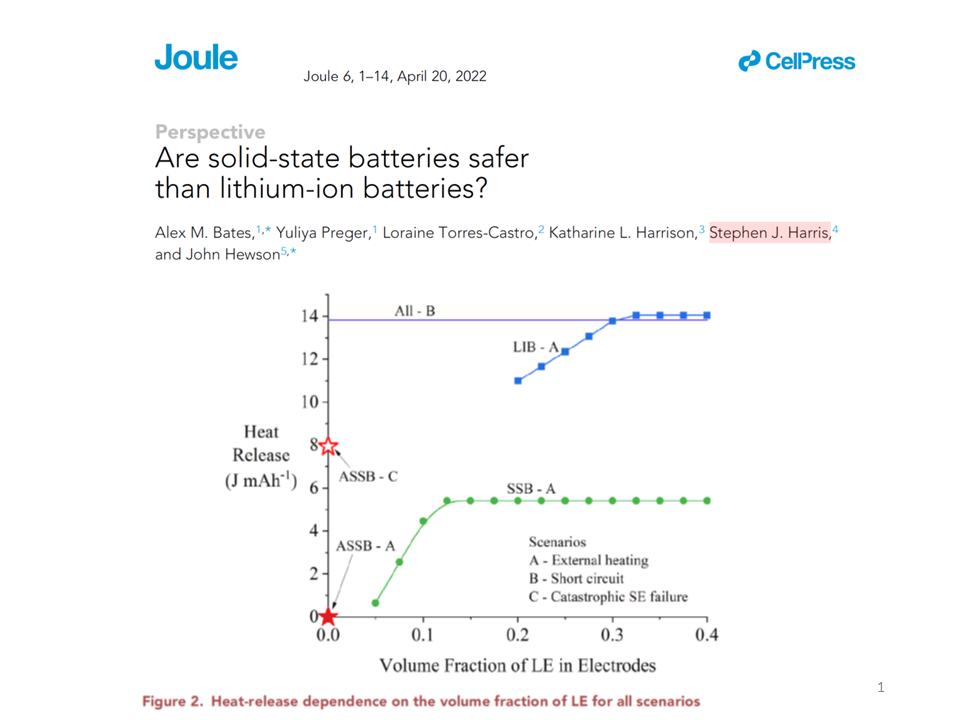Electrochem Seminar- " Are solid-state batteries safer than lithium-ion batteries?"
Electrochem Seminar- " Are solid-state batteries safer than lithium-ion batteries?"
Abstract
All-solid-state batteries are often assumed to be safer than conventional
Li-ion ones. In this work, we present the first thermodynamic
models to quantitatively evaluate solid-state and Li-ion battery heat
release under several failure scenarios. The solid-state battery analysis
is carried out with an Li7La3Zr2O12 solid electrolyte but can be
extended to other configurations using the accompanying spreadsheet.
We consider solid-state batteries that include a relatively
small amount of liquid electrolyte, which is often added at the cathode
to reduce interfacial resistance. While the addition of small
amounts of liquid electrolyte increases heat release under specific
failure scenarios, it may be small enough that other considerations,
such as manufacturability and performance, are more important
commercially. We show that short-circuited all-solid-state batteries
can reach temperatures significantly higher than conventional Li ion,
which could lead to fire through flammable packaging and/or
nearby materials. Our work highlights the need for quantitative
safety analyses of solid-state batteries.
Speaker
Stephen Harris
Steve Harris received a BS degree in chemistry from UCLA and a PhD in physical chemistry from Harvard University. After a Miller Post-Doctoral Fellowship at UC Berkeley, he began his career at the General Motors Research Labs. Apart from a stint at the Ford Scientific Research Labs, Steve worked at GM until 2011, when he was awarded a Miller Visiting Professorship in the UC Berkeley Chemistry Department. Since then he has worked in the Materials Science Division at Lawrence Berkeley Lab, and he is presently a Visiting Scholar in the Materials Science and Engineering Department at Stanford.
Steve’s work has ranged widely, and it includes studies of combustion chemistry, the kinetics and thermodynamics for growth of CVD films, aerosol dynamics modeling, fatigue failure in gears, and fracture mechanics in cast aluminum. When he returned to GM from Ford, he started work on Li-ion batteries, focusing on how the presence of heterogeneities and flaws affects ion transport, durability, and energy density. He is presently looking at the mechanics and electrochemistry at Li metal interfaces.
Harris has over 12,000 citations and an h-index of 61
